A water polo tournament was held on the Seine on 11 and 12 August 1900 as part of the 1900 Summer Olympics. Eight teams from four countries, all European, entered the event, although only seven ended up playing. The Osborne Swimming Club of Manchester, England, which has been listed with two rosters that are nearly entirely different, became the first Olympic water polo champions by defeating the Brussels Swimming and Water Polo Club of Belgium. Third place went to the two French-based semi-finalists, Libellule de Paris and Pupilles de Neptune de Lille, the latter of whom entered two teams, but merged them together after the first round.

The men's 200 metre backstroke event for the 1976 Summer Olympics was held in Montreal. The event took place on 24 July. There were 33 competitors from 23 nations, with each nation having up to 3 swimmers. The event was won by John Naber of the United States in world-record time; he was the first person to swim the event in under 2 minutes (1:59.19). It was Naber's fifth medal of the Games: completing a double in the backstroke events as well as golds in the medley relay and the 4×200 free relay, along with a silver in the 200 free. It was the second American victory and second American medal sweep in the men's 200 metre backstroke, after 1968; of the 12 medals from 1968 through 1976, 10 were won by Americans and the other two by Roland Matthes. Peter Rocca (silver) and Dan Harrigan (bronze) were the other two Americans, along with Naber, to reach the podium in 1976. The rules changed in 1984 to limit nations to two swimmers each, preventing further sweeps.

The men's 200 metre freestyle event at the 1976 Summer Olympics took place on July 19 at the Olympic Pool, Montreal. There were 55 competitors from 33 nations, with each nation having up to three swimmers. The medals were swept the United States, the only time there has been a medal sweep in the men's 200 metre freestyle. Bruce Furniss took gold, John Naber silver, and Jim Montgomery bronze. It was the second consecutive and third overall victory by an American swimmer.

The men's 200 metre freestyle event at the 1992 Summer Olympics took place on 26 July at the Piscines Bernat Picornell in Barcelona, Spain. There were 55 competitors from 39 nations, with each nation having up to two swimmers. The event was won by Yevgeny Sadovyi of the Unified Team; it was the first victory in the men's 200 metre freestyle by an athlete from the former Soviet Union since Moscow 1980. Anders Holmertz of Sweden repeated as the silver medalist, becoming the first man to win multiple medals in the event. Antti Kasvio earned a bronze medal in Finland's debut in the event.
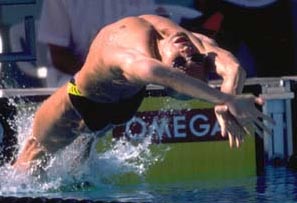
The men's 200 metre backstroke event at the 1992 Summer Olympics took place on 28 July at the Piscines Bernat Picornell in Barcelona, Spain. There were 44 competitors from 34 nations. Each nation had been limited to two swimmers in the event since 1984. The event was won by Martín López-Zubero of Spain. Vladimir Selkov of the Unified Team took silver, while Stefano Battistelli of Italy earned bronze. It was the first medal in the men's 200 metre backstroke for each nation.

Germany competed at the 1912 Summer Olympics in Stockholm, Sweden. 185 competitors, 180 men and 5 women, took part in 69 events in 14 sports. Due to the political fallout from World War I, this was that country's last appearance until 1928.

The men's 200 metre backstroke event at the 1996 Summer Olympics took place on 26 July at the Georgia Tech Campus Recreation Center in Atlanta, United States. There were 39 competitors from 33 nations. Each nation had been limited to two swimmers in the event since 1984. The event was won by Brad Bridgewater of the United States, with his countryman Tripp Schwenk taking silver. It was the first time since 1980 that one nation had two swimmers on the podium in the event. Bridgewater's victory was the United States' first in the event since 1984 and fourth overall. Italy earned its second consecutive bronze medal in the men's 200 metre backstroke, with Emanuele Merisi taking the honours this time.

The men's 100 metre freestyle was a swimming event held as part of the swimming at the 1912 Summer Olympics programme. It was the fourth appearance of the event, which had not been featured at the 1900 Games. The competition was held from Saturday July 6, 1912, to Wednesday July 10, 1912. Thirty-four swimmers from twelve nations competed. The event was won by Duke Kahanamoku of the United States, the nation's second consecutive victory in the event. Cecil Healy took silver, the only medal in the event for Australasia, the short-lived joint team of Australia and New Zealand. Another American, Ken Huszagh, took bronze.

The men's 200 metre backstroke event at the 2000 Summer Olympics took place on 20–21 September at the Sydney Olympic Park Aquatic Centre in Sydney, Australia. There were 45 competitors from 38 nations. Each nation had been limited to two swimmers in the event since 1984. The event was won by Lenny Krayzelburg of the United States, with his countryman Aaron Peirsol taking silver. It was the second consecutive Games that Americans had finished one-two in the event. Bronze went to Matt Welsh of Australia, the nation's first medal in the event since 1980.

The men's 200 metre freestyle event at the 1984 Summer Olympics was held in the McDonald's Olympic Swim Stadium in Los Angeles, California, on July 29, 1984. There were 56 competitors from 36 nations, with each nation having up to two swimmers. The event was won by Michael Gross of West Germany, the nation's first victory in the event. His countryman Thomas Fahrner took bronze. Americans placed second and fourth, with Mike Heath earning silver and Jeff Float in fourth place.
Désiré Alfred Mérchez was a male French swimmer and water polo player who competed in the 1900 Summer Olympics. He was born in Lille and died in Nice.
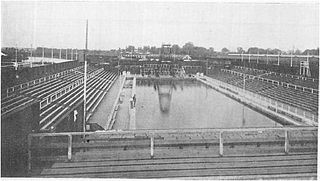
The men's 100 metre freestyle was a swimming event held as part of the swimming at the 1928 Summer Olympics programme. It was the seventh appearance of the event, which had not been featured only at the 1900 Games. The competition was held on Friday and Saturday, 10 and 11 August 1928. Thirty swimmers from 17 nations competed. Nations had been limited to three swimmers each since the 1924 Games. Johnny Weissmuller of the United States repeated as gold medalist in the event, the second man to do so. It was the fifth consecutive victory for an American swimmer in the men's 100 metre freestyle. István Bárány earned Hungary's first medal in the event since 1908 with his silver. Katsuo Takaishi's bronze was Japan's first men's 100 metre freestyle medal. Bárány and Takaishi prevented the Americans from sweeping the medals a third consecutive time, as the United States swimmers finished first, fourth, and fifth.

The men's 100 metre freestyle was a swimming event held as part of the swimming at the 1936 Summer Olympics programme. It was the ninth appearance of the event, which had not been featured only at the 1900 Games. The competition was held on Saturday and Sunday, 8 and 9 August 1936. Forty-five swimmers from 23 nations competed. Nations had been limited to three swimmers each since the 1924 Games. The event was won by Ferenc Csik of Hungary, the nation's first victory in the event since 1904 and third overall. For the second consecutive Games, Japan took two medals in the 100 metre freestyle, this time silver and bronze. The United States' seven-Games medal streak in the event ended as the nation's best result was sixth place by Peter Fick.

The men's 100 metre freestyle event at the 1956 Olympic Games took place between 29 and 30 November. There were 34 competitors from 19 nations. Nations had been limited to three swimmers each since the 1924 Games. The event was won by Jon Henricks of Australia, the nation's first medal in the event. Australia would win a second 0.4 seconds later and a third 0.9 seconds after that, sweeping the podium—the first sweep in the men's 100 metre freestyle since the United States did it in 1920 and 1924, and the first sweep of any event by Australian competitors. This year, the Americans finished fourth through sixth. It was the first time since 1924 that Japan had competed but not medaled.
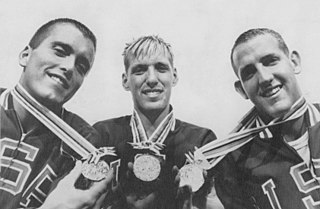
The men's 200 metre backstroke event at the 1964 Summer Olympics took place between October 11 and 13. There were 34 competitors from 21 nations, with each nation having up to 3 swimmers. The medals were swept by the United States, with Jed Graef, Gary Dilley, and Bob Bennett taking gold, silver, and bronze respectively.
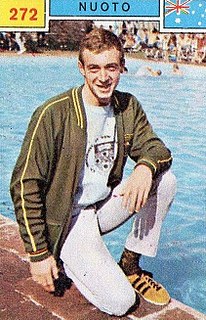
The men's 200 metre freestyle event at the 1968 Olympic Games took place on 24 October at the Alberca Olímpica Francisco Márquez. It was the third time the event was held, returning for the first time since 1904. There were 57 competitors from 26 nations, with each nation having up to three swimmers. The event was won by Michael Wenden of Australia, the nation's second victory in the event ; Australia extended its podium streak in the event to three Games over 68 years. It was Wenden's second gold medal of the Games, completing a 100/200 free double. Americans Don Schollander and John Nelson took silver and bronze, respectively.
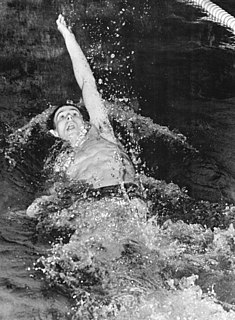
The men's 200 metre backstroke event at the 1968 Summer Olympics took place on 25 October at the Alberca Olímpica Francisco Márquez. There were 30 competitors from 21 nations, with each nation having up to three swimmers. The event was won by Roland Matthes of East Germany, the second gold medal for a German swimmer after Ernst Hoppenberg won in 1900. Matthes completed the backstroke double in the first Games both events were held, with Olympic record times in both. The United States, which had swept the podium in 1964, finished in the next three places behind Matthes: Mitch Ivey took silver, Jack Horsley bronze, and Gary Hall Sr. 4th.
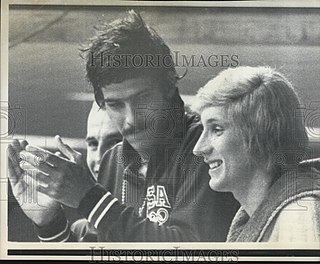
The men's 200 metre freestyle event at the 1972 Summer Olympics took place on August 29 at the Olympia Schwimmhalle. There were 46 competitors from 27 nations, with each nation having up to three swimmers. The event was won by Mark Spitz of the United States, the nation's second victory in the event. It was the third gold medal for Spitz in 1972, halfway to his goal of six. His teammate Steve Genter took silver, with Werner Lampe of West Germany earning bronze. Defending champion Michael Wenden of Australia finished fourth.

The men's 200 metre backstroke event at the 1972 Summer Olympics took place on September 2 at the Olympia Schwimmhalle. There were 36 competitors from 23 nations, with each nation having up to 3 swimmers. The podium was very similar to the previous Games in 1968, with Roland Matthes of East Germany winning gold and the United States taking the other two medals, including one going to Mitch Ivey. Matthes and Ivey were the first two men to earn multiple medals in the event, with Matthes the first to win back-to-back championships and Ivey adding his 1972 bronze to his 1968 silver. Mike Stamm was the silver medalist in Munich. Matthes also defended his 1968 100 metre backstroke title, giving him the backstroke double a second time.

The men's 200 metre freestyle event at the 2012 Summer Olympics took place on 29–30 July at the London Aquatics Centre in London, United Kingdom. There were 40 competitors from 31 nations.



















